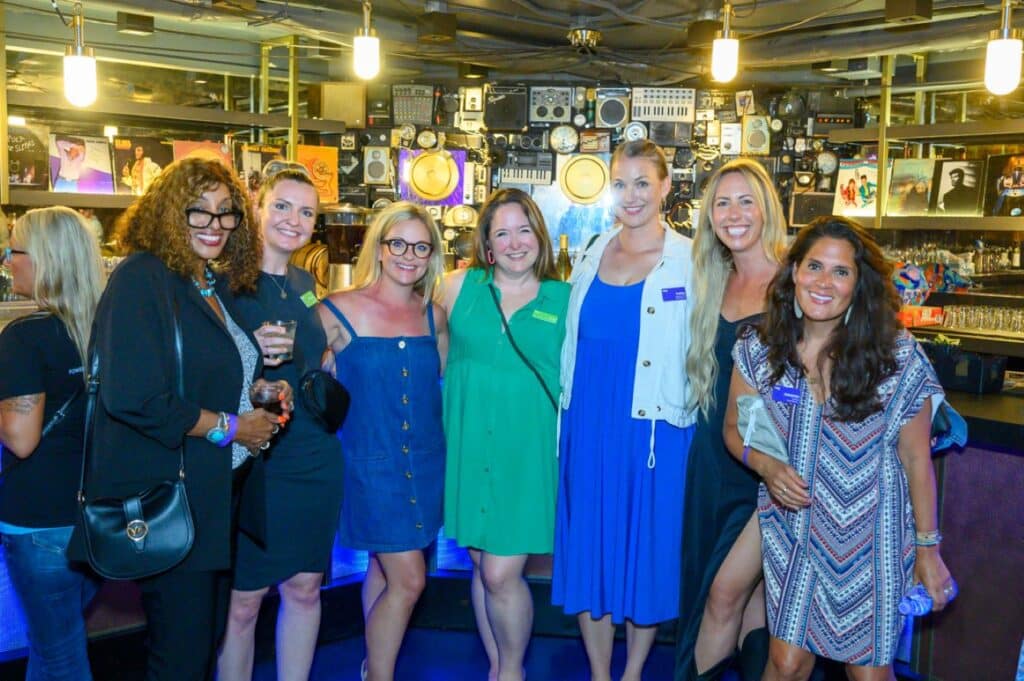

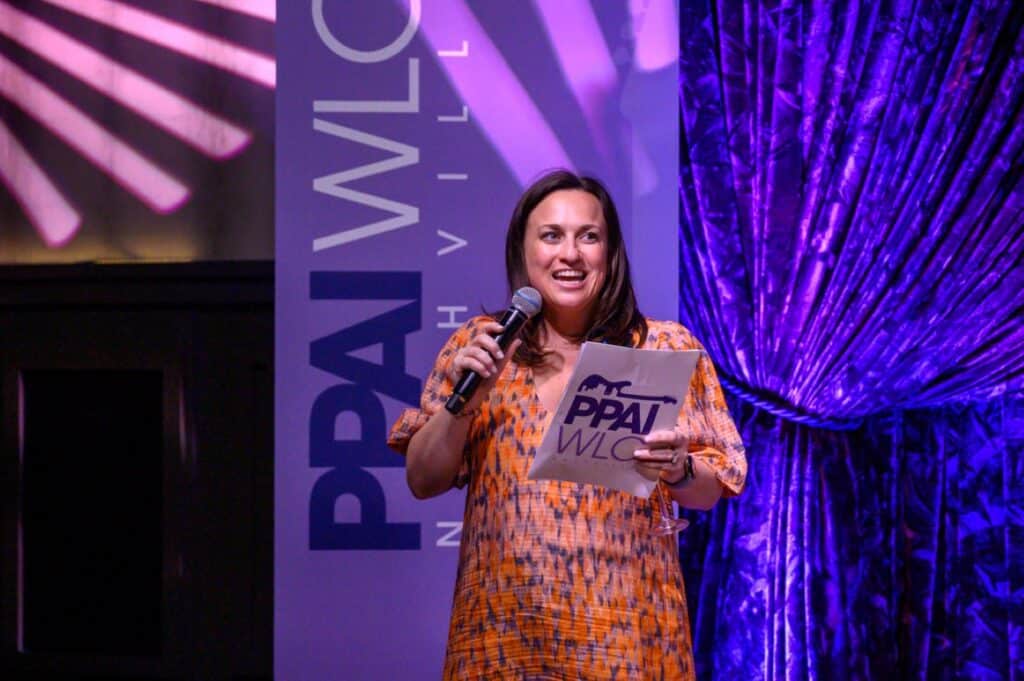
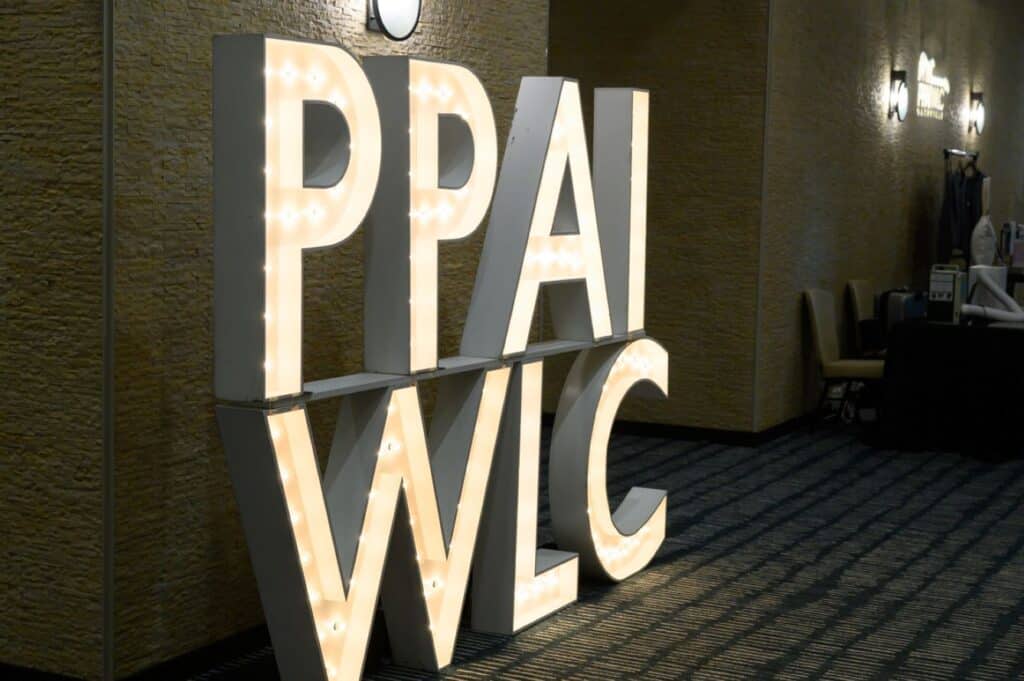
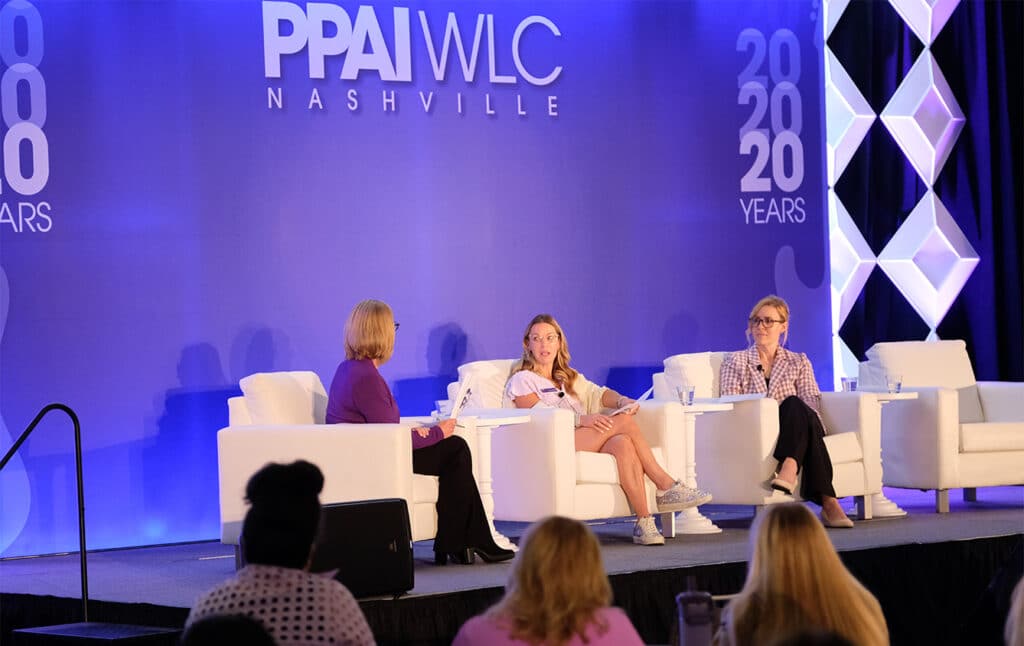
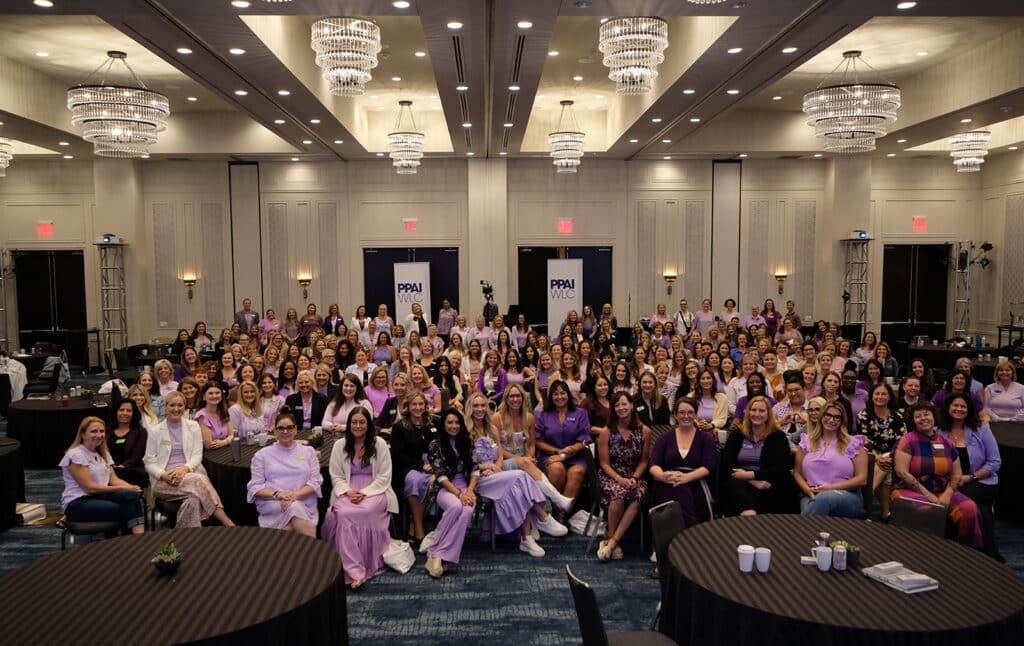
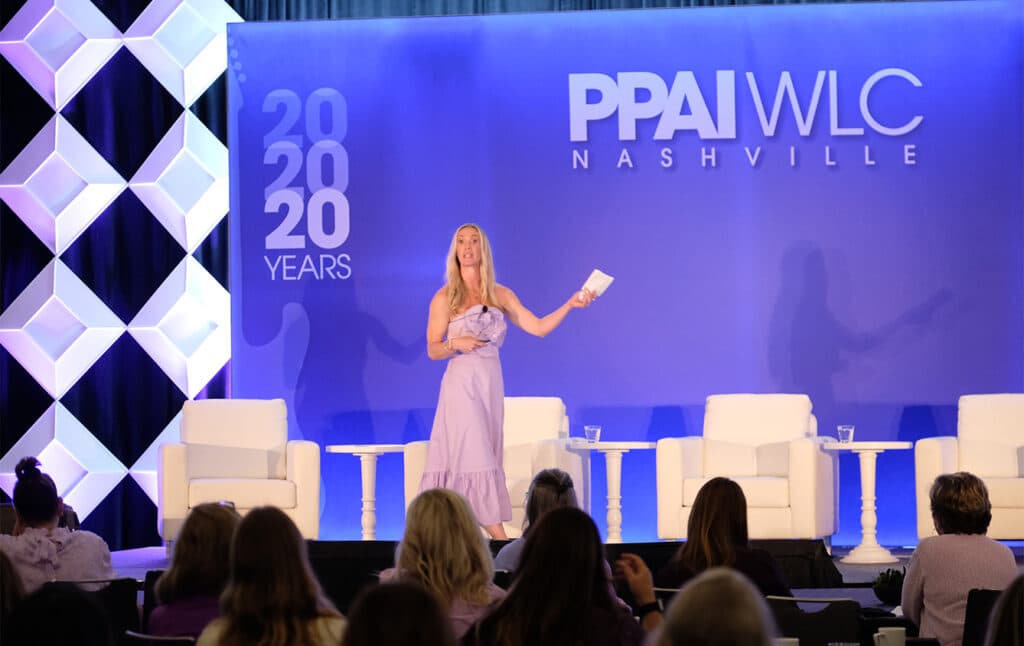
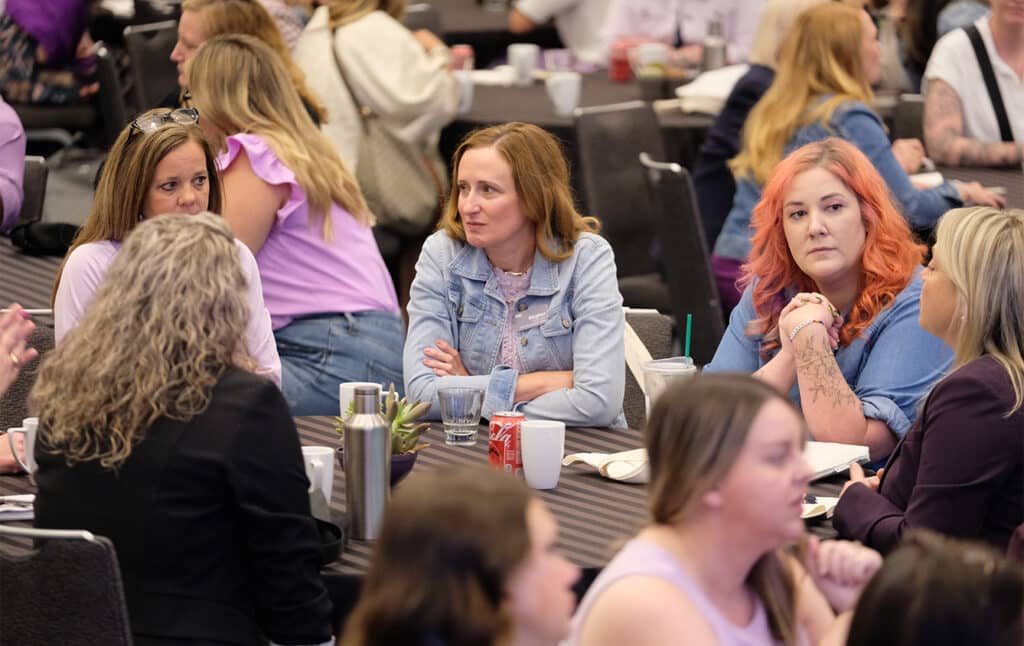
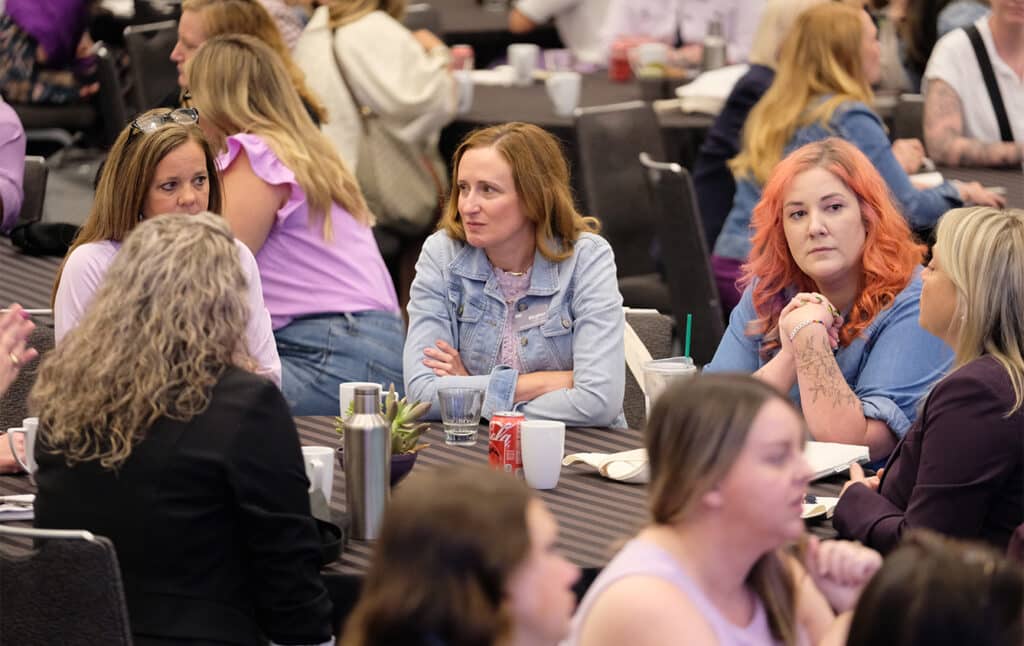
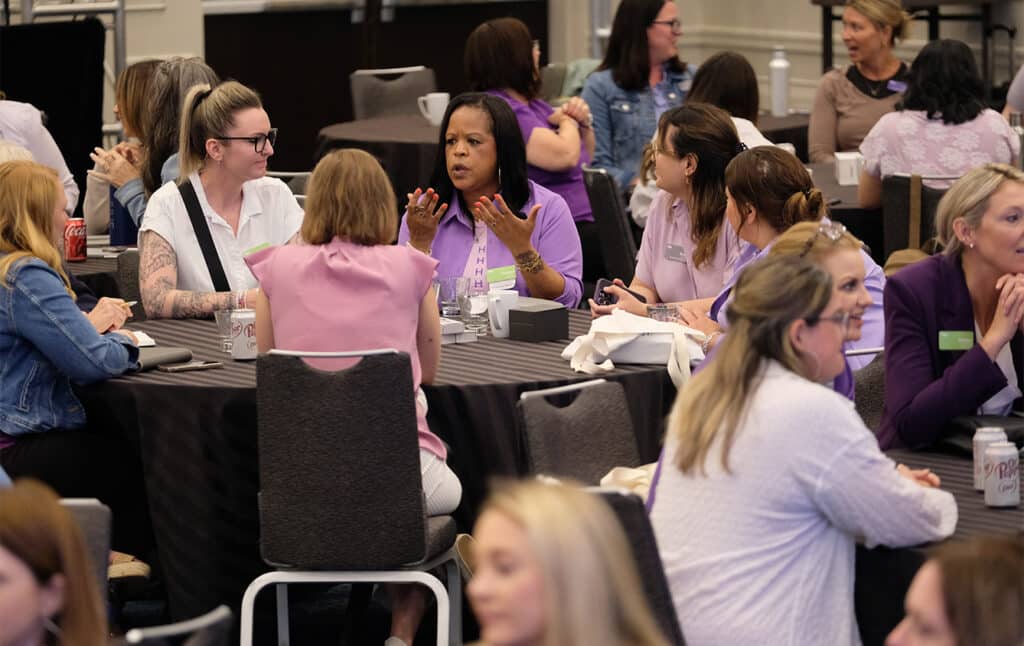
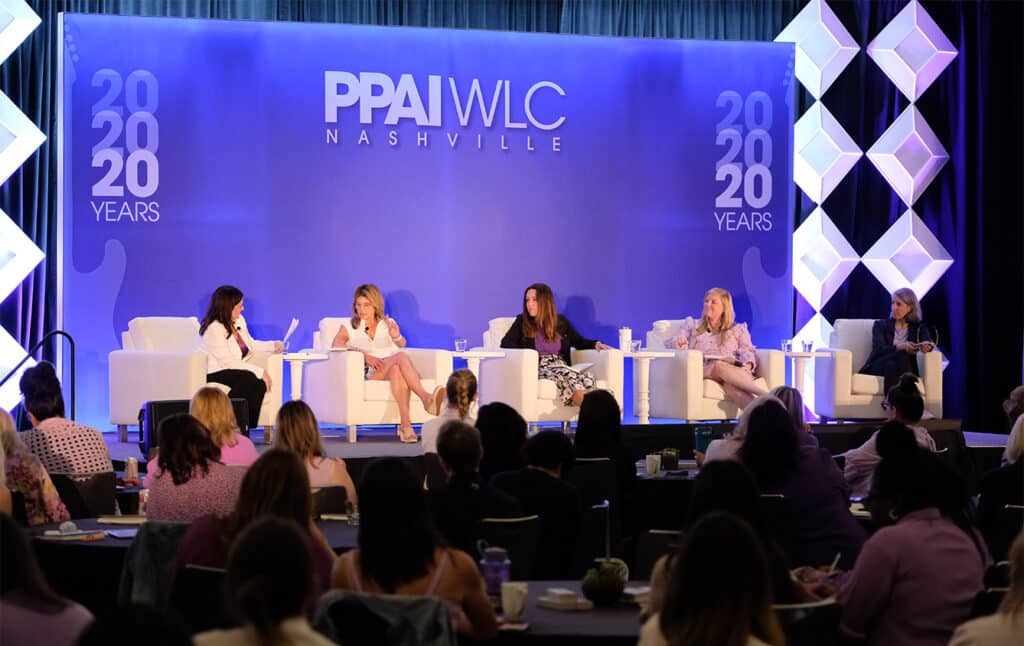
This year’s Women’s Leadership Conference in Nashville broke its own record with 221 registered attendees. A fitting benchmark for the 20th event of its kind, WLC’s high attendance numbers reflect the community built through the efforts of PPAI and the women who have continued to foster growth in the industry.
- PPAI Media recently shared an oral history of the event’s origins as told by the core group of founding women determined to make such an event a reality for the promo industry.
While community among women is a foundation upon which WLC thrives, this year’s event was peppered with panels and sessions that utilized the industry knowledge of the women leaders present.
“This is my first time [at WLC], and I’m here with 12 of us from PCNA,” said Liz Haesler, global chief merchandising officer at PCNA, who presented on a panel entitled ‘Future of Promo.’ “I’m just blown away. This whole group and the way it has been organized has been so inspiring.”
Women of PPAI 100
Just last month the second annual PPAI 100 list was unveiled, revealing the distributors and suppliers who earned the top honor that PPAI awards member companies. A dynamic that WLC highlights is that PPAI 100 is full of companies with women in positions of leadership.
With WLC bringing so many PPAI 100 leaders to one place, it was a great opportunity to invite some of those women to a panel discussion on the state of promo and the successes and challenges that their companies are currently facing.
The “Women of the PPAI 100” panel included:
- Latisha Marshall, Senior Vice President of Operations, ePromos Promotional Products
- Brianna Mazze, Vice President, Compliance & Sustainability, St. Regis
- Jodie Schillinger, MAS, Executive Vice President, Maple Ridge Farms
- Lori Bauer, CEO, iPROMOTEu
- Lindsey Davis, MAS, Director, Sales and Professional Development , PPAI (Moderator)
At one point during the session, Mazze opened up about the difficult push and pull between sustainability and sales goals.
“I struggle with this every day,” Mazze says. “I’m so passionate about sustainability and mitigating climate change. Where I land is that this industry is changing because the consumer is changing.”
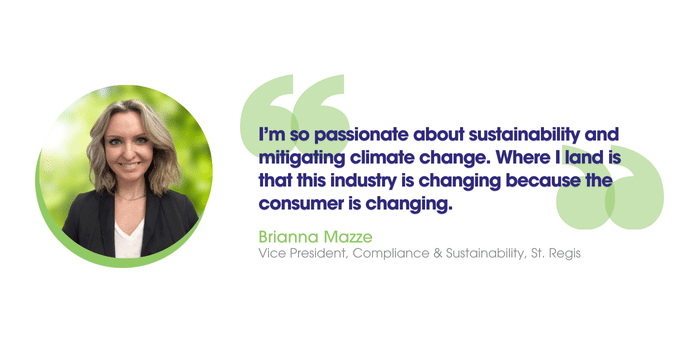
The audience also watched the panel parse out the need for intention when investing in technology and how any developing technology is only as useful as its ability to address a stated goal.
“Technology, while sometimes scary, I find to be very inspirational in my area,” says Marshall, who discussed the strategy behind implementing technology for standard operating procedures, training, onboarding and AI. “How can I leverage the big things we’re doing to enhance other things?”
The Future of Promo
Tuesday’s keynote session was a conversation centering on where the promo industry is going between three women who have shown valuable foresight over the course of their careers. The panelists included:
- Erin Reilly, Founder and CEO of Pop! Promos, and sitting member of the PPAI Board of Directors.
- Liz Haesler, Global Chief Merchandising Officer at PCNA, the No. 3 ranked supplier in PPAI 100.
- Denise Taschereau, Founder and CEO of Fairware, and incoming Board chair of the PPAI Board of Directors.
- Michele Pytlinski, Senior Vice President of Client Strategy at Stran Promotional Solutions, the No. 20 ranked distributor in PPAI 100.
- Ellen Tucker, CAE, MAS, Vice President of Revenue and Expositions, PPAI (Moderator)
These women were able to provide more than intuition regarding the future, as their roles within both the PPAI Board and their companies put them in positions of influence in guiding the promo industry’s next steps.
Regarding future obstacles, the women discussed the supply chain issues that are currently creating familiar problems for importers, but the panel also touched on hypotheticals they have a watchful eye on going forward, including the ramifications of geopolitical possibilities.
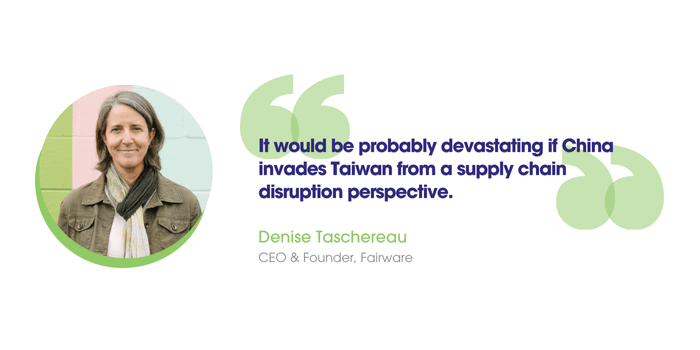
“It would be probably devastating if China invades Taiwan from a supply chain disruption perspective,” says Taschereau. “Think COVID devastating.”
As leaders, who have successfully navigated a drastic change in workforce models since the onset of the pandemic and the embrace of work-from-home or hybrid models, the panel also discussed the ways adaptability needs to be put into practice.
“Prior to COVID, I think all of us on our team got more of our fulfillment through work than we do now,” Reilly says. “I think our expectations have just changed; now we’re more focused on having balance in our lives. Now, we want 50% of our fulfillment to come from friends, family, home and then job is the other 50%.
“It’s tough but important as a leader to acknowledge that we’re not getting back to 80%. They don’t want 80% of their fulfillment to come from work. They want 50% of their fulfillment to come from work.”

